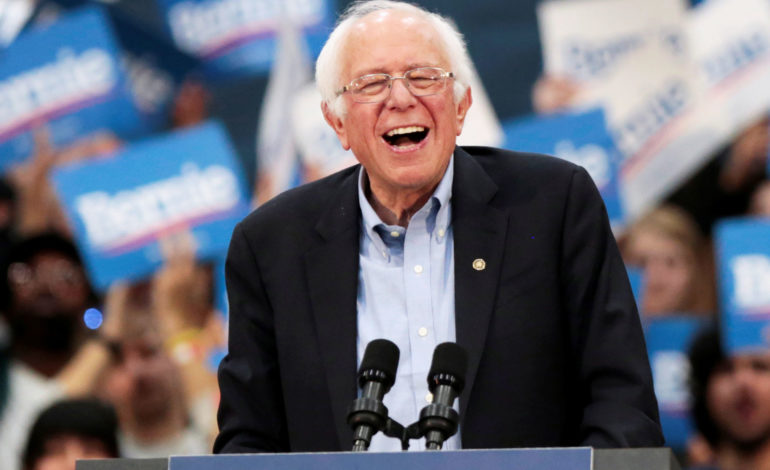MANCHESTER, NH —Democratic presidential candidate Bernie Sanders cemented his status as the front-runner for the party nomination with a narrow win over Pete Buttigieg in New Hampshire’s presidential primary on Tuesday.
Sanders, the progressive Independent senator from neighboring Vermont, finished first, with Buttigieg, the former mayor of South Bend, Indiana, finishing second and rising Senator Amy Klobuchar (D-MN) finishing third.
Senator Elizabeth Warren (D-MA) and former Vice President Joe Biden finished fourth and fifth, respectively.
More than 294,000 ballots were cast in New Hampshire’s Democratic primary according to the state party, breaking the record set in 2008 during former President Obama’s historic campaign.
Sanders and Buttigieg both took home nine delegates as a result of the primary voting, with Klobuchar taking home six.
“Our campaign is successfully reaching out to working people, young people, communities of color and all those who believe in a government of compassion and justice,” Sanders said in a statement on Wednesday. “This is the coalition that wins elections.”
Sanders drew 26 percent of the vote in New Hampshire, while Buttigieg drew 24 percent. Klobuchar had 20 percent, Warren, 9 percent and Biden 8 percent.
Despite the loss, Buttigieg said on Wednesday his strong results in Iowa and New Hampshire showed he had momentum. He plans to double his number of staff in Nevada to 100 people.
The primary came on the heels of a chaotic Iowa caucus marred by problems with its vote-counting app and a major delay in the release of its results, which led to the resignation of Iowa Democratic Party Chair Troy Price.
The Democratic field also shrank to eight candidates after New Hampshire, as Deval Patrick, the former Massachusetts governor, dropped out on Wednesday. Tech-savvy businessman Andrew Yang and Senator Michael Bennet (D-CO) also dropped out on Tuesday night after poor performances.
More diverse states next on the primary circuit
As the race for the White House continues, the scene will next shift to Nevada on February 22, where more than a quarter of the residents are Latino, followed a week later by South Carolina, where about one fourth of voters are African American.
Buttigieg said he believes the change in demographics could benefit his campaign.
“I think we’re getting a whole new look from Black and Latino voters who have so much riding on making sure that we defeat Donald Trump, because they are among those with most to lose if they have to endure yet another term of this president,” he said.
Fourteen additional states will vote on Super Tuesday on March 3, when former New York Mayor Michael Bloomberg will enter the race and be included on the Democratic presidential ballot for the first time.
According to the latest national poll from Morning Consult, Sanders has 29 percent support nationwide, followed by Biden at 19 percent and Bloomberg at 18 percent.
Sanders gained 3 points in the poll after winning New Hampshire this week, while Biden lost three points following his disastrous fifth-place finish, The Hill reported.






Leave a Reply